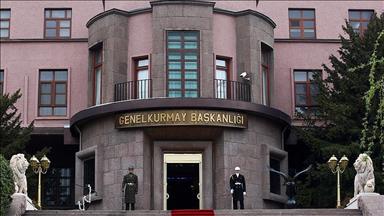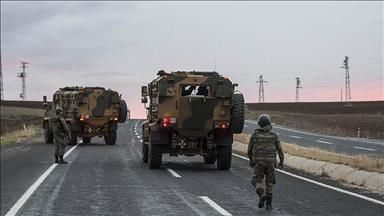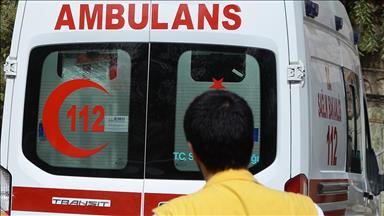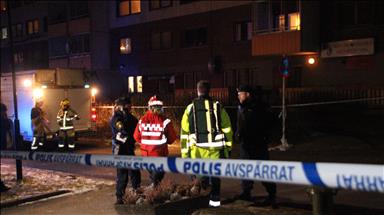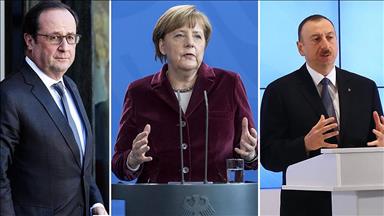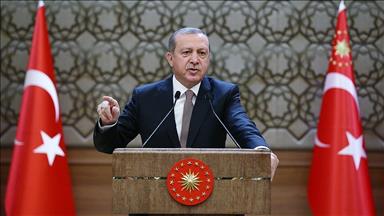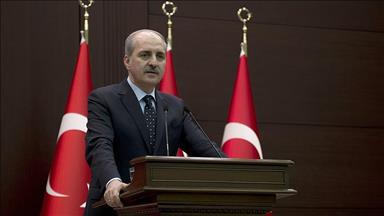Turkish PM: Syrian regime responsible for Ankara attack
'YPG is a pawn of the Syrian regime and the regime is directly responsible for the Ankara attack,' says Davutoglu
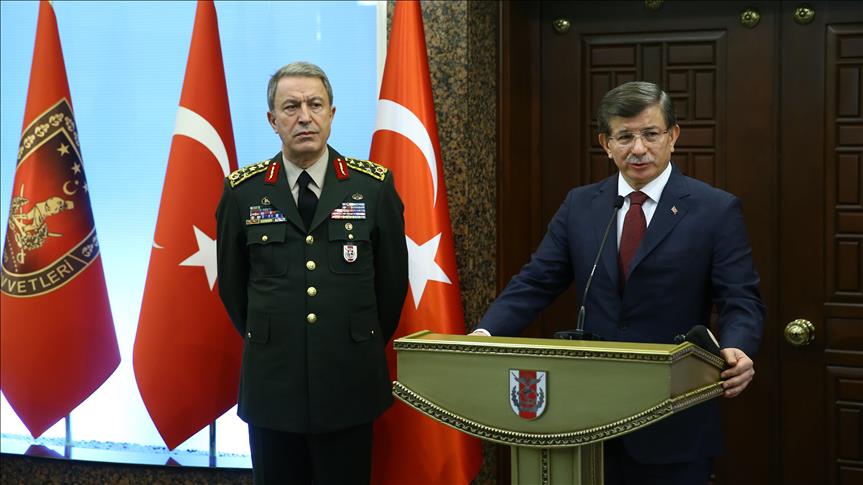
Ankara
ANKARA
Turkish Prime Minister Ahmet Davutoglu has said the Ankara car bomb attack was carried out jointly by a YPG member from Syria and PKK members based in Turkey.
"The assailants have all been identified. It was Syrian national Salih Necar who was born in the northern Syrian city Amuda in 1992," he said in a press briefing Thursday.
The premier was speaking a day after a terrorist attack hit military vehicles in central Ankara on Wednesday evening, killing at least 28 people and wounding 61. Following Davutoglu’s remarks, President Recep Tayyip Erdogan said 20 of the 28 killed were members of the Turkish military.
"YPG is a pawn of the Syrian regime and the regime is directly responsible for the Ankara attack. Turkey reserves the right to take any measure against the Syrian regime," he said.
YPG is the armed wing of the PKK's Syrian affiliate, both of which are considered terrorist organizations by Turkey.
"All necessary measures will be taken against [YPG and PKK] anywhere and under any circumstances. No attack against Turkey has been left unanswered," he added.
The Turkish premier further blamed Moscow and its recent aerial attacks for paving the way for YPG to advance into the town of Azaz in northern Syria, drawing tens of thousands of Syrians to pile up at Turkish border in search of refuge.
"I repeat my warning to Russia - which lately gives air support for YPG to advance into Azaz and conducts heavy shelling on Syrian people - not to use the terrorist organization against innocent Syrian people and Turkey," he said.
"All those who intend to use terror pawns against Turkey must know that [playing] this game of terror will hit them like a boomerang," he added.
Davutoglu also maintained that Turkey will never forgive NATO members, mainly the U.S., for keeping ties with a "terrorist organization that targeted us at the heart of Turkey".
Ankara has long been critical of Washington's open support for the PYD and its armed wing YPG, and its objection to consider the PYD as a terrorist group.
"We have all the evidence on where they came from, how they were organized, etc. I will give the orders to the Foreign Ministry to distribute it to all countries - mainly the P5 countries [permanent members of UN Security Council] - and those who say YPG is not a terrorist group," Davutoglu said.
Recently, Syria’s UN envoy Bashar Jaafari also said that the PYD enjoyed the support of not only the U.S. but also of President Bashar al-Assad’s regime.
"Terror is a common problem for the whole world and this common issue can be overcome by a joint fight," Turkish Foreign Minister Mevlut Cavusoglu wrote Thursday on his Twitter account.
"We expect this solidarity, from now on, to be turned into more concrete and result-oriented cooperation," added Cavusoglu.
The deadly blast occurred during the evening rush hour on Merasim Street, which connects Dikmen Street to Inonu Boulevard, which is close to the Turkish General Staff and parliament buildings.
It hit military vehicles carrying personnel while they were waiting at traffic lights on Inonu Boulevard.
Turkish Interior Minister Efkan Ala announced later in the day that at least 14 people suspected to be linked to the attack had been apprehended in simultaneous operations carried out in seven provinces (Istanbul, Adana, Bolu, Tekirdag, Izmir, Ankara and Diyarbakir), and they are being taken to Ankara.
"A multi-pronged investigation continues," added the interior minister.
Meanwhile, Istanbul Governor Vasip Sahin told reporters Thursday that the security measures had been amped up in the city.
"We have maximized the security measures in Istanbul," he said.
The Turkish capital Ankara was targeted by twin suicide bombings on Oct. 10, when 103 people were killed in an attack on protesters gathering outside the city’s main train station for a peace rally. The attack was the deadliest in modern Turkish history and has been attributed to Daesh.
Istanbul’s historical district Fatih was also hit by a suicide bomber last month. The Jan. 12 suicide attack that killed 11 people -- mostly Germans -- occurred in the city’s tourist hub Sultanahmet, home to the Blue Mosque and Hagia Sophia.
Anadolu Agency website contains only a portion of the news stories offered to subscribers in the AA News Broadcasting System (HAS), and in summarized form. Please contact us for subscription options.


